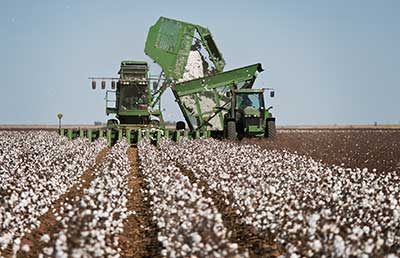Tax Court Allows “Double” Deduction of Prepaid Farm Expenses

A farmer is allowed to deduct prepaid farm expenses that are purchased before year-end, but not yet used in the farm operation. But what happens if a farmer deducts prepaid farm expenses in one year; then passes away early in the next year before they are used. The Tax Court just released a ruling on that fact pattern. In the Estate of Steve Backemeyer case, the Tax Court ruled that these expenses can, in fact, be “deducted twice”. Mr. Backemeyer was a farmer in Nebraska and at the end of 2010, he purchased about $235,000 of prepaid farm expenses (primarily chemicals and seed) and deducted them in full on his joint 2010 tax return.
Mr. Backemeyer passed away early in 2011 and his wife took over the farm operation. The prepaid farm expenses were listed on Mr. Backemeyer’s estate inventory at the original purchase cost. Mrs. Backemeyer then deducted these costs on her 2011 Schedule F based upon this fair market value. The IRS audited the return and disallowed all of the prepaid farm expenses deducted in 2011.
The IRS asserted several arguments for their denial. First, they argued that allowing the deduction twice would “amount to a double deduction and thereby contravene axiomatic principles of tax law”. I had to look up axiomatic in the dictionary and it states it is “self-evident or unquestionable”.
If that argument failed, then the IRS argued that the deduction made in 2010 should be “recaptured” under the tax benefit rule. If Mrs. Backemeyer was able to deduct them in 2011, the Mr. Backemeyer’s Schedule F should show this as income, otherwise the IRS argued “there would be a material distortion of income by allowing petitioners to deduct pre-paid expenses in 2010 and then allowing them to deduct these same expenses in 2011.”
The IRS also argued that Mrs. Backemeyer should not be allowed a step-up in basis for the prepaid farm expenses.
However, at Court, the IRS dropped all assertions other than the tax benefit rule. It conceded that Mrs. Backemeyer did get a full step-up and should be allowed to deduct these costs in full on her Schedule F.
The IRS relied on the Bliss Dairy case which involved the liquidation of a corporation that did not recognize a gain upon the distribution of feed to its owners. This is different from the Backemeyer case where the inheritance of prepaid farm expenses gets a step-up in basis that allows a full deduction. This is similar to a farmer who purchases a farm tractor; completely depreciates it down to zero; then passes away and the heirs receive a step-up in basis to fair market value and then the heirs start to depreciate it all over again. This is more common than the current case, but the essential tax rules are the same.
The bottom line is that the IRS lost the case and farmers can “double deduct” prepaid farm expenses, but it requires them to die first. I think most farmers will pass on this tax planning option.
Paul Neiffer is a certified public accountant and business advisor specializing in income taxation, accounting services, and succession planning for farmers and agribusiness processors. Paul is a principal with CliftonLarsonAllen in Walla Walla, Washington, as well as a regular speaker at national conferences and contributor at agweb.com. Raised on a farm in central Washington, he has been immersed in the ag industry his entire life, including the last 30 years professionally. Paul and his wife purchase an 180 acre ranch in 2016 and enjoy keeping it full of animals.

Could you get the same favorable result from the inventory for a cash basis taxpayer? Harvested crops in the bins?